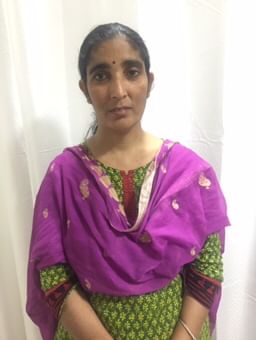What would you like to know about menopause?
What exactly happens during menopause?
You may have heard the word menopause mentioned by women with both excitement and trepidation; excitement because menopause means the end of painful and annoying periods, but trepidation, because it comes along with uncomfortable symptoms and also means the end of a woman's fertility.
A woman officially goes through menopause twelve months after her last cycle. In other words, if you don't have a period for twelve months, you are considered to be in menopause. While the age that this happens often varies, the average age is 51 years.
Menopause is a natural process that, on average, takes four years to complete. During the process, a woman's ovaries get smaller and eventually stop producing the hormones estrogen and progesterone.
Since these hormones control the menstrual cycle, once they are not produced anymore, the eggs become depleted and eventually she is no longer able to get pregnant.
The different stages of menopause are:
Perimenopause, during which your periods become irregular but don't stop. Perimenopause usually occurs to women in their late 40s, along with uncomfortable symptoms such as the famed 'hot flashes' (a quick feeling of heat sometimes accompanied by a flushed face and sweating), lower energy, vaginal dryness, sleep problems, night sweats, and changes in metabolism and mood. While you may be in the early stage of menopause, don't think you cannot get pregnant because you can! if you don't want to become pregnant, we recommend that you use some form of birth control to be safe.
Menopause. Menopause can really only be determined after the fact and since it starts 12 months after your last period. The same symptoms that can occur during perimenopause can also occur during menopause.
Postmenopause, a stage that lasts for a woman's entire life after menopause. Unfortunately, a recent study found that women can experience symptoms of menopause for an average of 4.5 years after their last period, so don't be surprised if you have hot flashes even while you are postmenopausal.
What can you do to relieve symptoms?
To clarify, menopause doesn't need treatment it's a natural part of life! but the symptoms can be uncomfortable, so there is no reason you shouldn't seek to relieve them, especially if the symptoms interfere with the quality of your life. So what can you do?
Maintain a healthy diet and regular exercise
Kick your bad habits, such as smoking and drinking a lot of alcohol
Avoid caffeine (caffeine often triggers hot flashes)
Remain sexually active! it can help preserve the lining of the vagina
Talk to your doctor about a prescription medication for hot flashes
Other causes of menopause: other causes of menopause (or early menopause) can be a hysterectomy, chemotherapy or radiation therapy, chronic diseases or primary ovarian insufficiency. If this describes your situation, speak to your doctor about how to relieve your symptoms. You should also speak to your doctor if you experience any vaginal bleeding in your postmenopausal state.
Your sex life after menopause
Just because you no longer get your period doesn't mean you can't have sex. In fact, some women report an increased sex drive after menopause, because they don't have the same anxiety about getting pregnant. On the other hand, other women report a decreased sex drive, which can be due to any number of reasons, including vaginal dryness, sleep problems, medications, depression, or more difficulty getting aroused. These symptoms, however, are able to be treated, if there is a will.



+1.svg)
